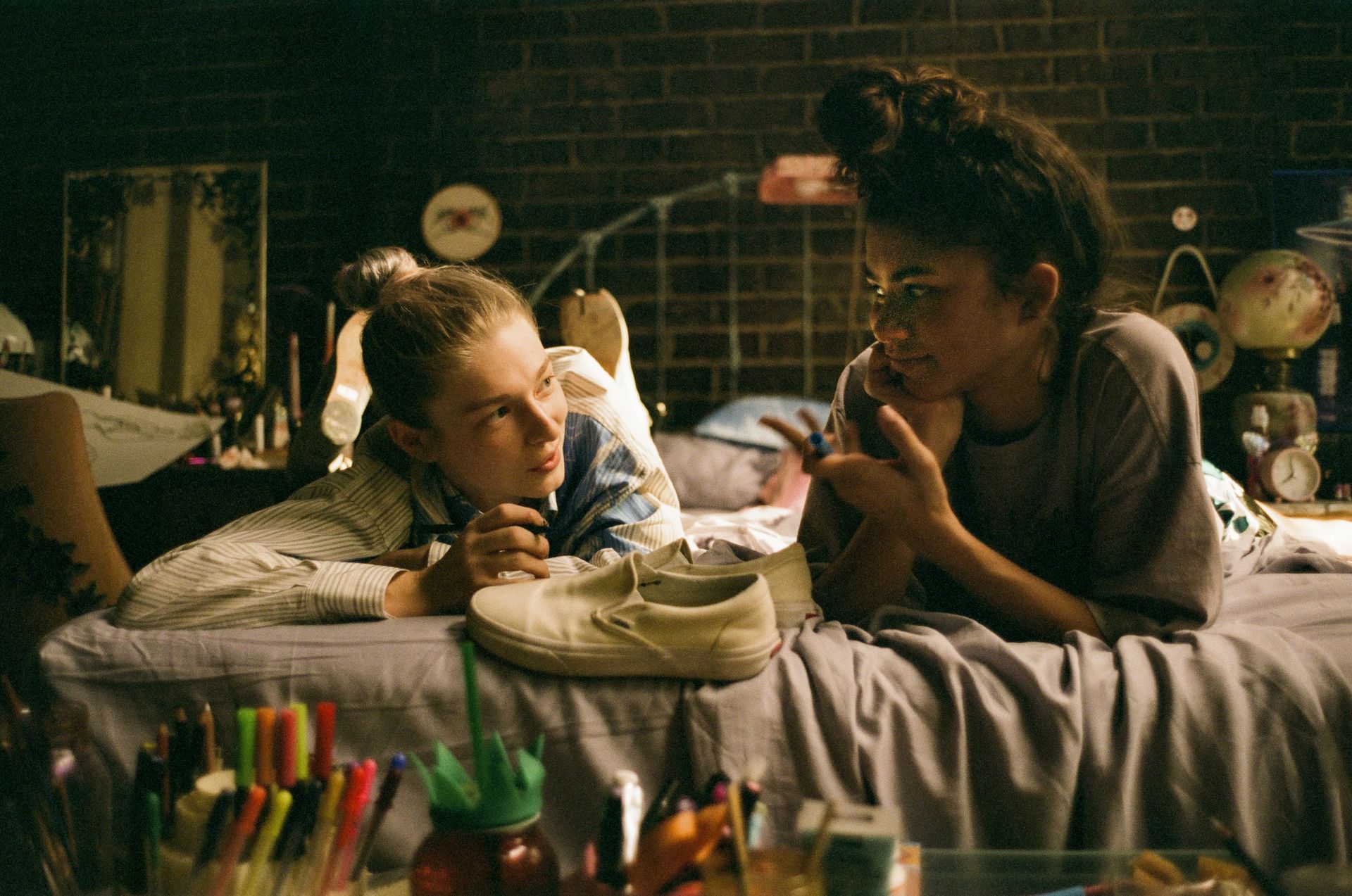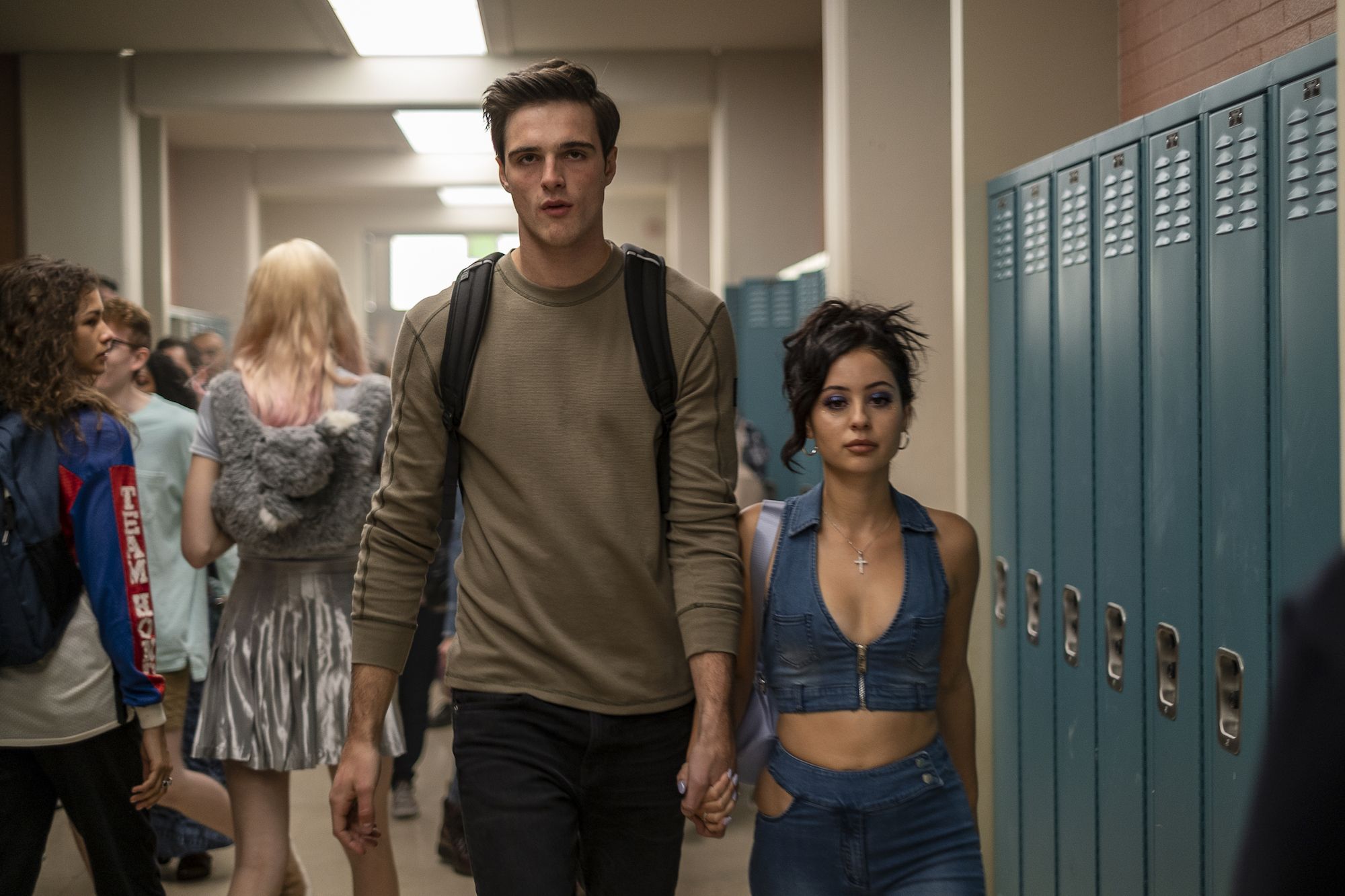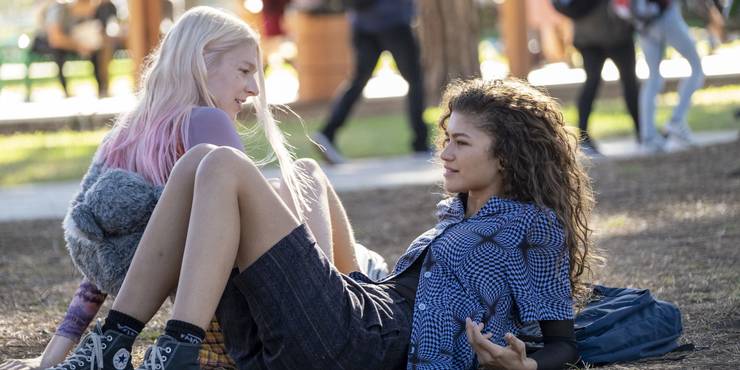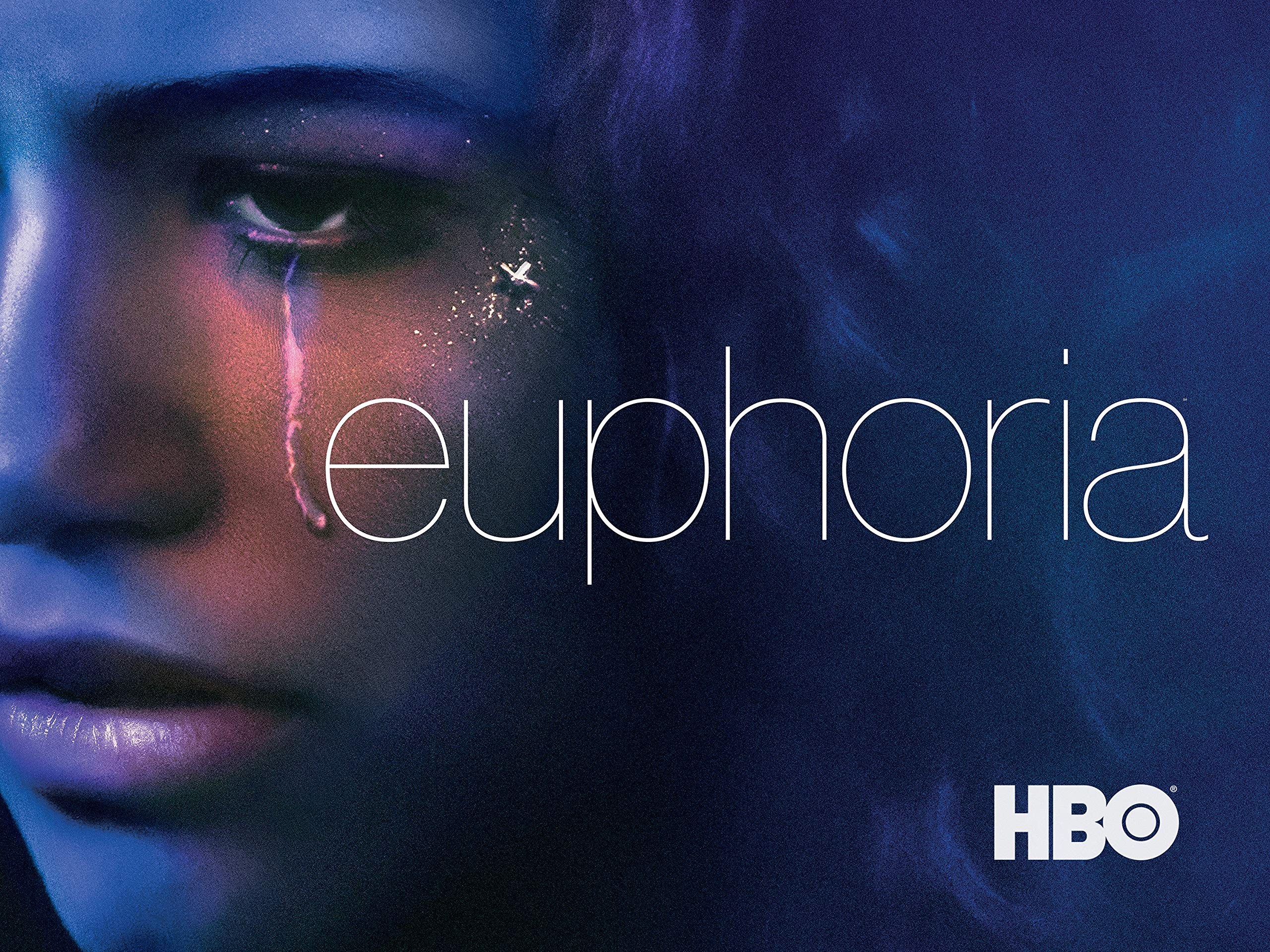One would argue that there is no dearth of representations of various dimensions of young love and teenage romances on modern television. However, it is imperative to observe that there are relatively fewer portrayals of substantial platonic friendships that shape the trajectories of the characters’ lives in small yet significant ways.
In the past decade, popular culture has increasingly witnessed a shift in the ways platonic friendships, especially concerning teen girls, are depicted in the mainstream media. Instead of making everything secondary to romance, many shows like Sex Education, etc, have attempted to dedicate equal, if not more screen space to the friendships that eventually sustain the emotional development of the characters.
Sam Levinson’s hit HBO series Euphoria has been criticised for the hypersexual depictions of teens and also praised by several critics, perhaps equally, for its diversity and portrayals of complex subjects like teenage addiction, sexuality, and abuse. Euphoria has been called many things, but maybe what intrigues one the most is how this show while dealing with a bunch of yearning and troubled teenagers, displays platonic friendships and subverts several stereotypes perpetuated by internalised misogyny along the way.
Euphoria has been criticised for not being realistic with all its teen girls wearing extravagant make-up, regularly partying, and indulging in recreational drugs. Paradoxically, the most praise it has received is about “how real it feels“. In an interview with Vulture, Levinson accredits this to the “emotional reality” he creates through the intricate inner worlds of the characters and their relationships with each other.
Contrary to what one would expect from a teenage drama involving a lot of sex and romantic endeavours, this “emotional reality” is built the most by the tiny glimpses of light through the platonic friendships within the overall gloom and darkness that seem to characterise the general tone of the show.
With unflinching confidence, Maddy says, “The last thing you need is to feel worse because you are not feeling something you are supposed to feel.” It is quite interesting to note that the love and acceptance that usually high-school dramas represent through romance is only truly found in the brief moments of friendship in Euphoria
Euphoria‘s platonic friendships feel extremely real, perhaps, because the show does not play into the typical clichés of dividing the students into ‘popular ones‘ and the ‘nerds‘, making them quite unlike the predictable one-dimensional caricatures of regular teen dramas. Right from the first episode of the first season, we see the characters having different levels of friendships with each other.
On spotting Rue alone, Maddy and Kat offer her a ride to the party, despite Rue being an ‘outcast‘ of sorts. One could assert that this show also categorically subverts the entire ‘mean girls‘ trope, which many famous high-school shows like Gossip Girls catered to in the early 2000s.
Also read: What Lessons Do Rom-Coms Teach Young Adults Like Me?

Maddy, who is otherwise regularly seen to indulge in violent, disruptive, and impulsive behaviours, is also seen to stand up for her friends and be present for them. Euphoria makes every character multi-layered, and while characters like Maddy, with a shaky moral compass, certainly should not be idealised, it is hard not to smile when she scolds BB for being mean to Kat, or says, “it’s okay” to Cassie after the latter pukes on her in the hilarious yet tragic hot tub scene.
While Cassie’s character this season is dealing with several insecurities and guilt and is not exactly the model of a good friend, there have been many instances of their close friendship in the past season, and perhaps, will be in future. One of the most memorable representations of friendship in the second season is when Kat finally confesses of not being able to “stand Ethan“, and instead of being judgmental, Maddy listens to Kat.
Evidently, in Euphoria, characters fare better in their friendships than in their romantic relationships. Be it Cassie’s complicated relationship with McKay, where her promiscuous reputation precedes her or Kat’s dissatisfaction with Ethan, or Nate’s distinctly toxic and abusive equation with Maddy, the teen girls in Euphoria find more safety, love, and acceptance in their platonic friendships than their respective romances
With unflinching confidence, Maddy says, “The last thing you need is to feel worse because you are not feeling something you are supposed to feel.” It is quite interesting to note that the love and acceptance that usually high-school dramas represent through romance is only truly found in the brief moments of friendship in Euphoria.
Despite the obvious bad choices that Maddy repeatedly makes, a viewer might observe that it is hard to paint her with a single stroke of the brush. She is undoubtedly confident and simultaneously insecure enough to think Nate’s abusive behaviour is all the ‘love‘ she deserves.

Evidently, in Euphoria, characters fare better in their friendships than in their romantic relationships. Be it Cassie’s complicated relationship with McKay, where her promiscuous reputation precedes her or Kat’s dissatisfaction with Ethan, or Nate’s distinctly toxic and abusive equation with Maddy, the teen girls in Euphoria find more safety, love, and acceptance in their platonic friendships than their respective romances.
One can also assert that even Jules’ relationship with Rue was better and less codependent when they were platonic. Rue depends on Jules so much for her sobriety that the latter almost becomes a substitute for drugs and feels suffocated. In a way, both of them are unfaithful toward one another: Jules repeatedly engages in sexual activities with others, including Eliot, and Rue blatantly lies to Jules about being clean.
Lexi has been friends with Rue “since preschool“, as we hear several times in the show. However, while growing up, they grew apart. Rue’s father’s tragic death and her subsequent addiction did not help her maintain any meaningful emotional connections, but throughout the show, we see Lexi care and check in on Rue. Lexi is also the first person that intoxicated Rue thinks of when she has to appear for a drug test, and as concerned as Lexi was, she helps Rue not get caught by peeing in a cup.
Also read: Deshadanakili Karayarilla: A 1986 Malayalam Film That Attempted To Portray Queer Teenage Life
Priya Roy, a Master’s Scholar from Banaras Hindu University and an ardent lover of Euphoria, says, “One of the most loved scenes of the show featuring Rue was perhaps the one in the Halloween party, where she threatens Troy to stay away from her sister Gia, and Lexi, adorably in her Bob Ross costume tries to help Rue out. It is particularly endearing because Lexi is portrayed as a sweetheart, who hates confrontations.” When they practice kissing, it is hard not to imagine the nature of friendship they might have had if it wasn’t for Rue’s heavy substance abuse impacting her emotional capacity and all her personal relationships.

One of the most underrated representations of platonic friendships in the show is of Fez and Rue. While we understand in the emotional door scene that it was probably Fez that supplied Rue drugs for the first time, he is more than just a typical drug dealer in another American teen drama.
Indeed, Cassie does not talk about her pregnancy to her friends and Rue’s debilitating struggle with loneliness hides in plain sight. These teenagers do not always talk about the ‘real‘ issues with each other, but they still sit around the same table, be it at the party or while discussing Cassie’s boy problems, making their friendships an accessible space, while the rest of the world seems unapproachable and unforgiving
Fez is also Rue’s friend who denies her drugs throughout the two seasons, time and again, and does not give in to her emotional appeals and guilt trips. He is quick to forgive when Rue apologises for her cruel words during her withdrawal and does not hesitate to defend Rue against bullies like Nate, even at his own expense. After watching all the scenes involving Fez and Rue, it is easy to comprehend that he genuinely cares for Rue, and perhaps, also regrets ever providing Rue with drugs.
While it is true that the teenagers in Euphoria are unaware of each other’s most vulnerable moments due to their insecurities and inability to express themselves honestly, quite characteristic of their age, it must also be understood that this is what makes the “emotional reality” of the show possible.

Indeed, Cassie does not talk about her pregnancy to her friends and Rue’s debilitating struggle with loneliness hides in plain sight. These teenagers do not always talk about the ‘real‘ issues with each other, but they still sit around the same table, be it at the party or while discussing Cassie’s boy problems, making their friendships an accessible space, while the rest of the world seems unapproachable and unforgiving.
Of course, there is similarly flawed parental love portrayed in the show, but one could easily argue that the only true kind of teenage love in Euphoria, if any, is represented through its platonic friendships.
Poulomi Chandra is currently pursuing her Master’s degree in English Literature from Jamia Millia Islamia, New Delhi. Her research interests are Feminist studies, Media, and Postcolonial studies. She also occasionally loves to scribble poetry when she can’t seem to hold it all in. Other than that, she’s very eager to read anything she can get her hands on when she is not obsessing over spicy food or taking long naps
Featured Image Source: MUSE TV
About the author(s)
Poulomi is a Master's scholar from Jamia Millia Islamia, New Delhi, who loves to scribble poetry and write essays just when she can't seem to hold it all in. Her research interests include feminist studies, postcolonial theory, trauma and disability studies. She is very eager to read anything she can get her hands on, when she is not obsessing over spicy food or sleeping





